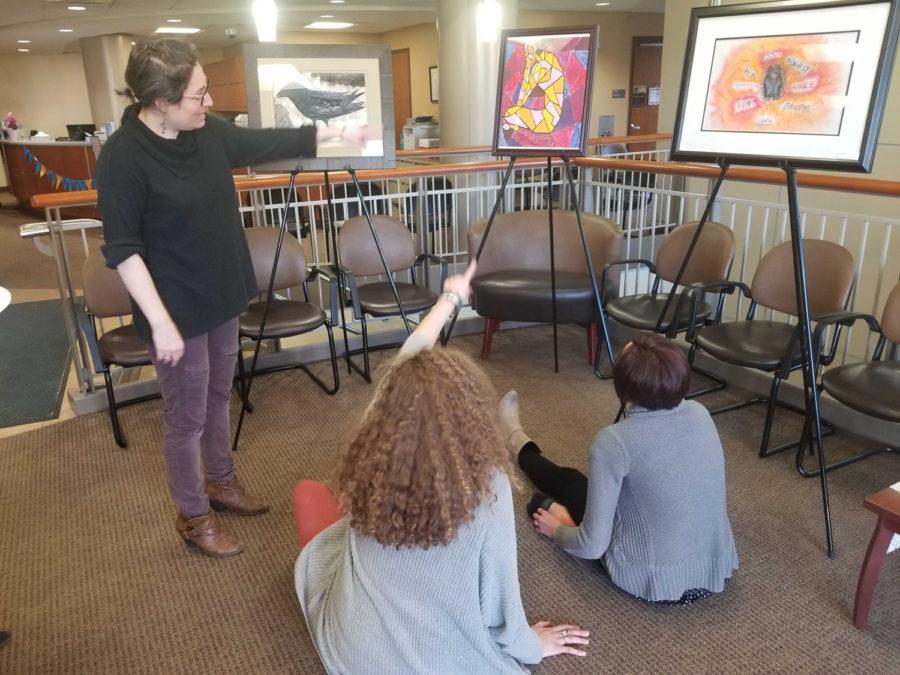Pitt’s graduate enrollment growth slower than its peers
Pitt graduates after their 2021 graduation at Heinz Field.
April 3, 2023
Pitt’s graduate enrollment growth over the past 10 years has been slower than that of its peers, which are Association of American Universities public schools such as Penn State University, according to Vice Provost for Graduate Studies Amanda Godley.
While AAU public schools have seen a nearly 25% increase in graduate enrollment over the past 10 years, Pitt is down about 9.6% in the same period. Pitt has 359 different graduate programs across 14 schools, including 62 programs that are exclusively online.
Godley said most nationwide graduate enrollment growth in the past 10 years has been in online graduate programs.
“Masters and professional students increasingly prefer online or hybrid programs since they tend to be more flexible and affordable,” Godley said. “The University is currently growing our support for the development of online and hybrid programs in order to increase accessibility to post-baccalaureate education in Pennsylvania, the U.S. and globally.”
According to Godley, enrollment in some graduate and professional programs fell during the COVID-19 pandemic. Godley said several departments paused doctorate program admissions during the pandemic to “focus their support” on current doctoral students who had their degrees delayed due to the pandemic.
U.S. restrictions on international student visas also contributed to the drop in enrollment during the COVID-19 pandemic. Godley said 20% of Pitt’s graduate and professional students are international students.
“Now that we are post-COVID, our graduate enrollments are bouncing back,” Godley said. “Full-time enrollments grew 3% from fall 2020-21 and 1% from fall 2021-22.”
Pat Healy, who has been on the organizing committee for the graduate student union since May 2019, said their department did not have the same enrollment restrictions as other areas of the University during the pandemic, yet the department has still struggled to bring in new doctoral students.
“I’ve been my adviser’s only Ph.D. student since the pandemic began,” Healy, a graduate student in the Department of Informatics and Networked Systems, said. “That’s pretty sad since we’ve really tried to bring in new researchers.”
Healy said they think part of the reason Pitt’s growth has been slower is because graduate student pay is not keeping up with inflation. Healy said they have friends who have had to move due to rent increases pricing them out of certain neighborhoods.
Healy, who lives in Squirrel Hill, said they find living there “extremely convenient” due to the well-served public transit to Oakland. However, Healy said increases in costs of living could force them to move.
“I’m finding it more and more difficult to live here on this stipend every year and may have to move somewhere farther away with less transit access just to keep treading water through my Ph.D.,” Healy said.
According to the 2022-23 Pitt stipend rates, graduate student assistants make $9,000 a term, teaching assistants make $10,330 a term and teaching fellows make $10,740 a term.
Healy said they are, in most ways, in a very “normal” Ph.D. student situation.
“I’m a 20-something who came here right out of undergrad, I’m for the most part able-bodied, I don’t have kids, et cetera,” Healy said.
Healy said people who are not in these “normal” situations may not choose to do Ph.D.s at Pitt due to certain barriers, despite Pittsburgh having a low cost of living compared to other cities, solid public transportation and world-renowned hospitals.
“I’m basically perfectly suited to be able to work long hours on very little pay without having to deal with Pitt’s lack of childcare options or high health care costs for dependents,” Healy said. “It’s a clear systemic barrier keeping some people out of grad school — particularly Ph.D.s — and, by extension, academia.”
Stephen Perry, a graduate student in philosophy, said recent speaker events with Riley Gaines and Cabot Phillips could potentially dissuade LGBTQ+ people from applying to graduate programs. Perry said many graduate students spoke at the March 25 rally that protested the Phillips’ event.
“Pitt promotes a specific image of inclusiveness and community that you fail to find for the most part after getting here,” Perry said. “I imagine that that is incredibly evident when prospective grads actually visit.”
Godley said she and others involved with Ph.D. programs aim to “maintain the high quality of those programs” while providing these students with more “holistic support” from first-year orientation all the way to exploring career options at the end of their program.
“We are expanding our mentoring for underrepresented Ph.D. students, such as first-generation college students, Black and Latinx students, and expanding professional development/job search opportunities,” Godley said.
Godley said she is “excited” about feedback from a fall 2022 survey about plans for graduate school, where found 85% of Pitt undergraduate students who responded said they would consider staying for graduate school.
“I think it both speaks to the great experiences our undergraduate students have at Pitt and the possibility of having even more Pitt undergraduates stay on campus for master’s or doctoral programs,” Godley said. “We have launched the Pitt2Pitt scholarship program for Pitt seniors and alumni so that Pitt undergraduates and alumni know that we value them and want them to stay here for graduate school.”
The Pitt2Pitt scholarship program allows graduating Pitt undergraduate students and alumni to receive up to a $7,500 tuition scholarship when enrolling in a participating graduate or professional program at Pitt. Some of these programs include business administration, bioengineering and applied behavior analysis.
Healy said a Pitt Grad Union would greatly improve Pitt’s ability to attract new students. In the past few months, graduate students at UChicago, Yale, Johns Hopkins, Boston University and others have voted to unionize with more than 90% “yes” votes.
“I’m not sure we’re at the tipping point where Pitt not having a grad union is a strategic disadvantage compared to its peers, but it certainly would be an advantage,” Healy said. “Not only in the fact union jobs just are, on principle, attractive to many people, but because it would give us a platform to advocate for ourselves to address the issues of pay and cost of living that I find central to this problem.”



